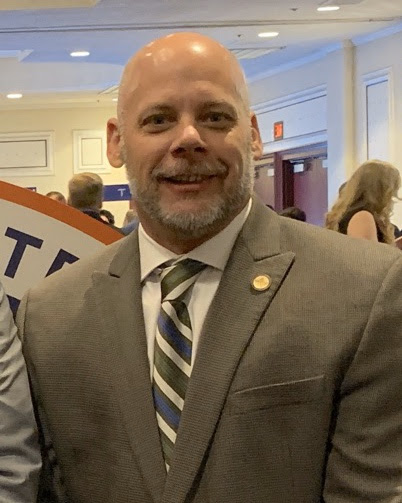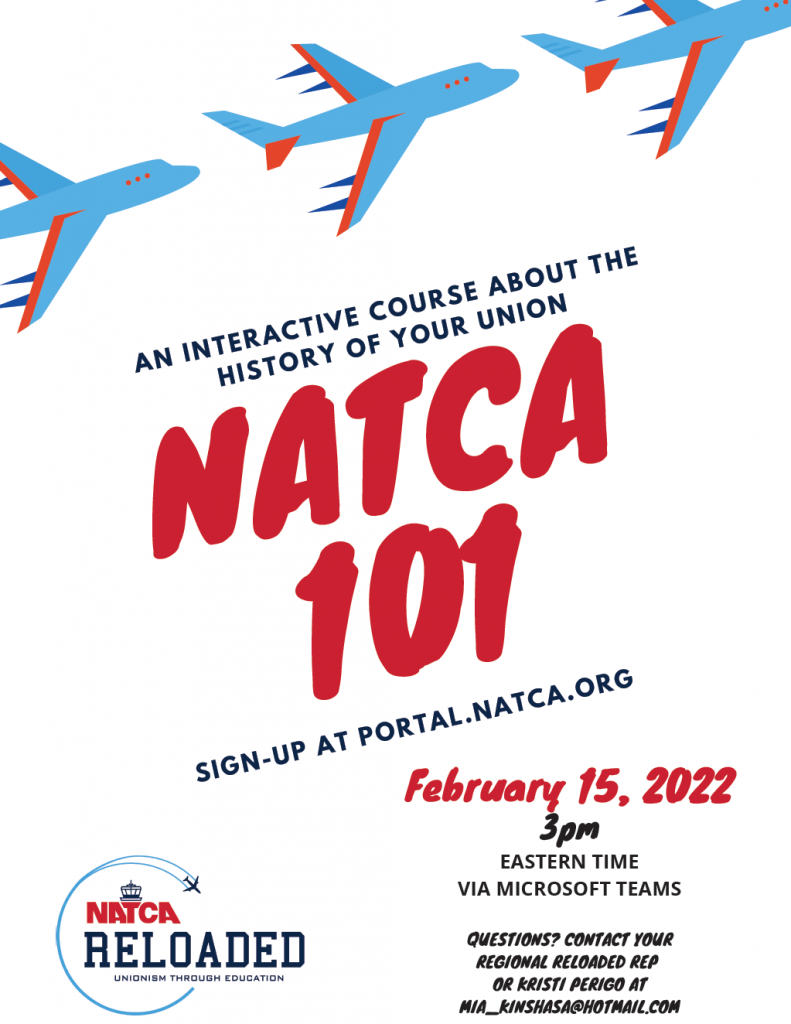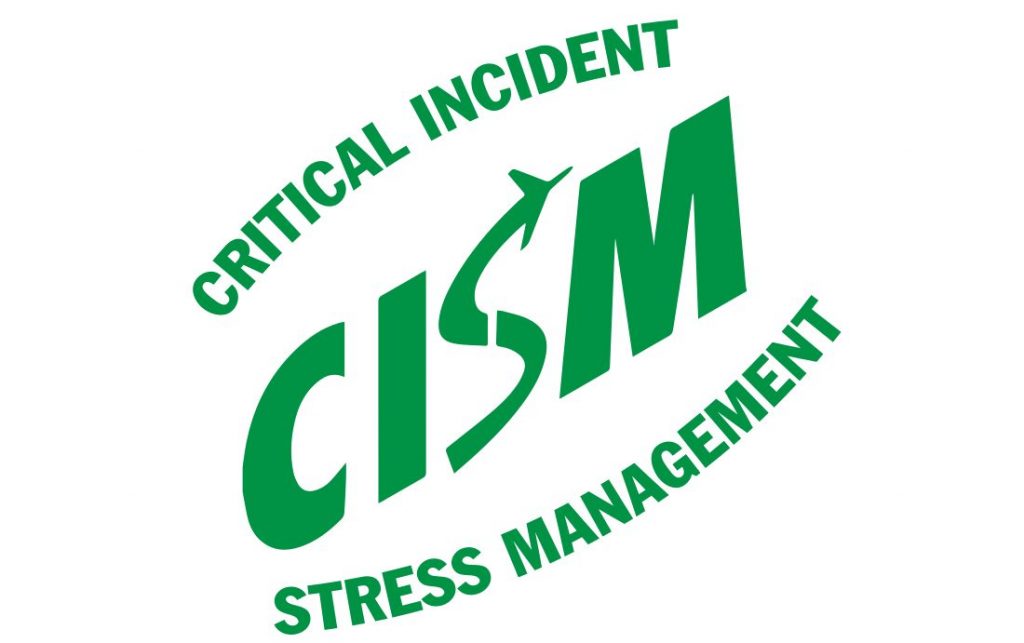
February 2022 New England Bi-Monthly Regional Update #1
From Mick Devine, NATCA New England Regional Vice President

Show me a FacRep who does everything on their own, and I’ll show you and bad FacRep. A labor union is the ultimate team sport, and we need all the help we can get from our army of volunteers to be successful. A FacRep’s job is not simply to represent its bargaining unit but to mentor and groom the next generation and that starts with a delegation of duties. A rep oversees Drug and Alcohol, Legislative, Professional Standards, Finance, Labor Relations, OSHA, Workers Comp, Communications, Safety, Training, Organizing, TRBs, audits, discipline, and all the other things that pop up on a daily basis.
Every leader and every member has their own unique skillset, and no two are the same. Reps are tasked with finding those within their purview that have the skillsets and the desire to help push the ball forward. It’s not because they can’t do all the work, or that they don’t want to, it’s that they may not be the best suited to represent the masses in every aspect of their job, nor do they have the time. A Leader is more of an executive who can delegate his responsibilities to the right person so we have the best people in the right roles to protect us all. A leader can’t be considered a leader until they’ve created a leader who has created a leader.
Regionally, we have a fantastic group of leaders in every aspect of our role, pushing the ball forward and helping pull everyone else past the finish line. They are tasked with grooming their replacement—not because they fear for their jobs, but because they feel the need to leave what they have in a better place than they were given. Every leader we have has that mindset. It takes the collective to represent the collective. It’s that statement that causes reps to have to ignore their personal desires and push in the direction of the collective. This is the most difficult aspect of leading a union on any level. Our collective voice is our biggest weapon.
This union is able to handle the loss of its long-time leaders because of this mantra. It’s not to say we don’t miss people like Paul Rinaldi and Trish Gilbert, but more to say they left the team in a much better place than they found it and we must move on. Whether it be a retirement, a demotion to management, an ERR, or an 1188, it is merely a bump in the road. We move on because our tentacles are long-reaching and plentiful. This is a sign that the cupboards are full and one person may be missed, but they won’t affect our trajectory.
RVP Schedule
I spent the first week of January in Chicago to kick off the CRWG workgroup with the agency. The CRWG is your facility staffing numbers that have been in a temporary status since 2014. Our goal is to agree on a scientifically based, repeatable, and defensible equation that will show how many bodies we need in all of our facilities nationwide.
The second week of the month was spent nationally trying to address the exorbitant amount of COVID cases we had on a backlog. All of our processes were created early on in the pandemic when we had a maximum of 180 positive cases in a week nationally. Over the last few weeks, we have been doing well over 100 cases a day. That put us days behind on our calls for each case. We have seen a tremendous rise in our cases regionally, with an average of as many cases in a two-day window as we did total from March of 2020 until November 2021. We saw as many as 1200 members out on COVID every day over the last month. That number is starting to decline daily and we are right around 800 now.
The third week of January was spent doing an NEB meeting as well as a National Validation Team briefing to AZO. We were able to add a few New England members to some important national projects during that meeting, as well as plan what NATCA in Washington (NiW) will look like this coming March during a pandemic. We had a goal of full throttle after the New Year, but omicron put a temporary change to that. NiW will be much smaller than previous years, but we will make the most of it during this important legislative year.
The fourth and final week of January was spent in Las Vegas watching our first ever Rep Training 1 instructor bootcamp. It has been two years since our last RT1 class was taught. The instructor pool has shrunk and those that we had were rusty. The National Executive Board monitored the National Training Committee’s boot camp with some goals in mind—Find new instructor candidates and get the current ones ready to instruct. BOS FacRep Matt Morgan attended the class as a potential new instructor. I, unfortunately, could not attend the entire boot camp and had to rush home due to a family emergency.
Vaccine Mandate
Due to the injunction ordered by the Federal Judge in Texas, there is a temporary hold of all actions and timelines with regards to the Vaccine Mandate. Obviously, this will make its way through the court system and we will see where it winds up. The reps will continue to be briefed on this ongoing issue as decisions continue to develop. While the federal government has withdrawn their quest to impose itself on the private sector, we do not believe our employer will withdraw their goal of ensuring every employee of theirs is fully vaccinated. This was made more evident when they filed an appeal to the injunction. This always appeared that it would be settled in the Supreme Court, and all indications still point that way.
From Scott Robillard, NATCA New England ARVP

Hello NATCA New England!
To start 2022, we are happy to convey that for the first time since Mick Devine became the NE RVP in September 2018 the Boston District and NATCA have canceled both the 1st quarter Pre-Pre-Arbitration Review (Pre-PAR) and Pre-Arbitration Review (PAR) as all cases have been resolved.
You have probably heard this from the NE Leadership team before, but to understand where you are, you must know where you came from. For evidence of where we were, I looked back at the first update that I wrote in October 2018. This is what I reported to the membership on the cases that were in the pipeline when this team took over.
38 total cases were brought:
1 case was withdrawn with a side agreement.
1 case was held in abeyance.
2 cases were withdrawn, as the merits did not present in a fashion that would indicate favorable to move forward.
3 settlement agreements were reached.
8 cases were sustained with modified remedies.
23 cases proceeded to PAR
Since 2018, one of the most positive steps we have seen at the regional level is that many of the cases are not making it out of the facility and NOT because they are not being filed. What is new to New England is that the cases are being sustained at the facility level. I believe this is due to two factors:
- Your FacReps have been consistent and reasonable both in contractual application and remedies.
- Over the past three years, your LR Team has taken those cases from the facility level and has adjudicated them successfully.
Those two factors together have changed the trajectory of New England.
To protect your rights, you must know your rights!
There is a heavy snow event that is more focused on your hometown than it is on your duty location. The snow at work is light and fluffy and not really all that impactful. The roads and highways around the facility are clear and the parking lot at work is plowed. The snow at your house is deep and wet. Your town is having serious issues clearing the roads and those that are cleared, are extremely icy.
Q1: Can you request Article 19 for weather at your home when the work location is generally in good condition?
Answer: Yes, you can. Article 19, Section 1, states “BETWEEN THE EMPLOYEE’S HOME AND THEIR DUTY LOCATION”.
Q2: ½ hour prior to the start of your shift you call the facility and state that a snow event has made it impossible for you to get to work. What does the Agency do?
a. Place you on annual leave.
b. Place you on sick leave.
c. Place you on leave without pay.
d. Place you on excused absence.
e. A19 is dependent on staffing and workload. Due to low staffing, you are ordered to report to work.
Answer: D. You shall be placed on excused absence.
Q3: After the weather event, a joint review will occur. If the absence is not supported evidence, it may be converted to:
a. Absent Without Leave (AWOL)
b. Leave WithOut Pay (LWOP)
c. Annual Leave (AL)
d. Sick Leave (SL)
Answer: C. It may be converted to Annual Leave.
Labor Management Relations
From Kyle Szary, NATCA New England LR Coordinator, ZBW

In the fall of 2018, I received a call from Mick Devine, Scott Robillard, and Curt Fisher asking if I would step up and volunteer as the Region’s LMR Coordinator. As someone who believes Unions are only as powerful as the quantity and quality of their member-volunteers, I was honored to be considered for the position and gladly accepted.
Just a few weeks later on October 30, we sat down with the Agency as representatives of New England’s new NATCA administration for our first regional Pre-PAR. It was an extremely long day in a Boston Center conference room as Scott Robillard, Moe Scoville, and I worked our way through a massive stack of 38 grievances, more than 95 percent of which were carryovers from the previous administration. That day we walked away with 30 percent of those grievances either sustained or settled and a PAR date on that calendar which yielded one grievance decided in favor of NATCA and 20 grievances decided in favor of the Agency.
Fast forward more than three and a half years, and the picture is radically different:
2021 Q1 Pre-PAR: Canceled; all grievances resolved at the Step-2 level.
2021 Q1 PAR: Canceled; all grievances resolved at the Step-2 level.
2021 Q2 Pre-PAR: 2 grievances; 100% sustainment.
2021 Q2 PAR: Canceled; all grievances resolved at Pre-PAR.
2021 Q3 Pre-PAR: 14 grievances; 93% sustainment or settlement.
2021 Q3 PAR: Canceled; all grievances resolved at Pre-PAR.
2021 Q4 Pre-PAR: 6 grievances; 83% sustainment or settlement.
2021 Q4 PAR: 100 percent of grievances decided in favor of NATCA.
Today, I’m happy to report that both the 2022 Q1 Pre-PAR and PAR meetings have been canceled due to the Agency issuing sustainment decisions for all pending grievances at the PAR level. This is the first time since 2018—and my tenure—that we have been able to cancel both quarterly LMR activities.
Under the leadership of Mick, Scott, and Curt, we have developed a team that has completely changed the course of labor-management relations in New England, which consists of Bryan Krampovitis, Matt Morgan, Joe Allen, Jake Detwiler, Kevin Coeyman, Steve Brown, Nicholas Marangos, and Josh Boyd. These folks are sharp, know our contract in and out, and provide the right focus to continue raising the bar.
Additionally, New England FacReps are more engaged with region-level LMR leaders, and the grievances that are filed—of which there are much fewer—are more focused, more detailed, and more winnable. All of this is a testament to the hard work your representatives do on a daily basis to get the job done. When you get a chance, please thank them for their countless hours of volunteerism and advocating on your behalf.
Executive Order Revocation Update
As most of you are aware, between 2017-2021 the Trump Administration issued multiple Executive Orders (EOs) impacting federal employees. While the Slate Book insulated us from most of those, many NATCA members were still affected by others, such as Executive Order 13839, which streamlined the firing process, including the following:
- Encouraged agencies to fire rather than suspend employees.
- Changed how agencies handled the disciplinary process as well as federal employee union roles in it.
- Limited periods for employees to demonstrate acceptable performance.
- Eliminated fairness concepts such as the requirement to use progressive discipline.
- Encouraged agencies to tailor different penalties for the same or similar offenses, ignoring established law.
- Required the use of removal when a suspension would be appropriate.
- Forced agencies to rush their decisions after issuing proposed removals with unilateral timelines.
- Significantly curtailed the types of agency actions that could be appealed through the administrative grievance or arbitration process.
- Ordered agencies to remove performance ratings and incentive pay, including cash awards; step increases; and retention, recruitment and relocation incentives, from the list of subjects that are open to grievances and arbitration proceedings in union CBAs.
- Instructed agencies to take away the ability to grieve unfair removals from service or to challenge performance appraisals or awards at all.
While all of the Trump-era EOs were formally revoked last January, the Office of Personnel Management (OPM) finally announced last month its intent to change OPM rules to be in compliance with the revocation.
In their proposal to change OPM rules, they noted the former rules to be “…inconsistent with the current policy of the United States to protect, empower, and rebuild the career federal workforce as well as current policy to encourage employee organizing and collective bargaining.”
Additionally, they noted the rules “placed unnecessary restrictions and limitations on agencies regarding decisions on when performance assistance is provided to employees” and “removed previous flexibilities enjoyed by agencies in how to address performance issues with their employees.”
2022 Q2 Pre-PAR
The second quarter regional Pre-Pre-Arbitration Review (PAR) meeting is scheduled for April 26-28.
Training Information
From Lisa Fulford, NATCA New England Training Rep, A90

Due to COVID cases, the majority of training in the New England Region has been restricted for several weeks. Some facilities are restricted to training that can only be accomplished at 6 feet, which allows for a majority of training to still take place. The numbers have been trending downward, but until the numbers are lower, training will remain suspended. I have been having discussions with our training reps for the facilities that are approaching 30 days of “no training authorized.” We have discussed Article 67 and the impact of no training on our trainees. If you have concerns or questions please reach out to your facility Training Rep or email us at [email protected].
The Training Reps recently had a call with our NE Region TRB representatives to discuss trends and issues the TRB reps are seeing in Training Review Boards. Since re-starting training last fall, there have been several TRBs that have been conducted in the last month. A training review is scheduled once a trainee’s training has been suspended. “The purpose of the review process is to ensure that all reasonable opportunities for training success were afforded while maintaining the integrity of the training program.” (FAA 3120.4R Chap 6 Section 11).
During the training review, the board members review all documents related to training, including the training reports, FAA form 3120-25, also known as the “dash 25.” One consistent issue in almost all training reviews is the lack of information on the dash 25 about a trainee’s session. Often times the OJTI will discuss what the trainee learned during the session, the items the trainee needs to continue to work on, rules of ATC, and techniques. Yet the write-up on the back will say, “No problems noted.”
Every session is filled with learning opportunities, so even if the trainee has a great session there is always something that can be written down. You may have heard the phrase in ATC training, “Train to succeed, document to fail.” Although we never want people to fail at ATC, we must provide accurate, detailed information about their training session. Items to include in the write-up are WHAT happened during the OJT session, WHY did those events happen, and HOW can the trainee resolve the issues going forward?
Clearly written feedback is useful to the trainee, other members of the training team, the facility training rep, and you as the OJTI. Remember, as an OJTI you have the responsibility to uphold the integrity of the training program. Do your training reports reflect that?
NATCA Reloaded
From Jennifer Dickinson, NATCA Reloaded Rep, BOS

The NATCA Reloaded Committee has a wonderful collection of classes that can be taught virtually or in person. We offer Building Lasting Relationships, Having A Difficult Conversation, Collaborative Leadership, Building a Stronger Local, Critical Thinking, and NATCA 101 which is taught on the 15th of every month. We are also working hard on building new classes that we can present in the future as well.
NATCA Reloaded is very focused on education and offers classes that teach different ways to develop constructive and positive relationships, strengthen communication, engage the membership, think critically, and receive a comprehensive overview of our union. We would love the opportunity to teach at a Regional Meeting or sign up for a class that we may be presenting virtually such as NATCA 101 through the NATCA portal. If you have any questions please feel free to reach out and I will answer any questions you may have.
Learning is the only thing the mind never exhausts, never fears, never regrets. -Leonardo Da Vinci
FacRep Corner
From Malcolm Latvala, BTV Facility Representative

“I want to file a grievance” is something I routinely hear from members in my building. This declaration is often followed by a description of an issue that could easily be resolved through a conversation with the appropriate management representative. A grievance isn’t the only way to resolve disputes, nor is it the first thing that should come to mind when you find yourself having an issue. One of the first places I direct a member who has an issue they want to take action to resolve is Article 8 of our contract titled “problem-solving.”
There are a number of things that I like about using this process to resolve local issues, but one of the big ones is that it is easy for the member to initiate. I often direct the member to send an email to their immediate supervisor requesting an Article 8 meeting on the topic. That’s all that needs to be done to get the ball rolling. The Agency then has ten days to schedule a meeting between that member, an appropriate management representative, as well as a NATCA Rep. At the meeting, there will be an attempt to reach a resolution that everyone can accept. If that is the case, great, problem solved. However, if a satisfactory fix for the issue cannot be agreed on, then the Agency has 10 days to respond and present a written decision on the issue. The member then has the opportunity to continue to pursue the issue through the more formal grievance process if they wish. This is a critical step in the process because now the Agency has put its opinion in writing, which can frame their position for a potential follow-up grievance to resolve the issue.
Another thing I like about this process is that the member can feel free to pursue this avenue even if I disagree with them about the issue, and they don’t need any technical knowledge about how grievances are filed to get it started. On several occasions, I have felt that an issue was not something I would support a grievance on, but when I saw the Agency’s response following the Article 8 meeting, my mind was changed as a result of what the Agency representative wrote down on paper.
This process is easy to do, can solve your issues, and potentially bring to light bigger issues that benefit your entire building. Use it!
Critical Incident Stress Management
From Jennifer Dickinson, NATCA CISM Rep, BOS

Now that the holidays have come and gone, hopefully, life has become calmer. It is not uncommon in the winter months to feel cooped up and possibly at times a little down. This change in mood is referred to as the “winter blues” and is often caused by the colder darker months. If you find yourself feeling this way it is important to do things that can help break the cycle. Some ways to mitigate the effects of this are exercise, eat well, surround yourself with positive people, check something off your bucket list, manage your screen time, prioritize sleep, and allow yourself some downtime, even if just for a few minutes. If winter sports aren’t your thing that’s okay because there are many indoor hobbies that you can enjoy to help break up the monotony of the colder months!
Always remember CISM is here for you 24 hours a day, 7 days a week. We have tools and resources that can help you work through whatever comes your way. You never have to walk through life’s struggles whether temporary or long term alone.
You are not lost, you are redirecting. You are not a failure, you are learning. You are not behind, you are preparing. -Unknown

